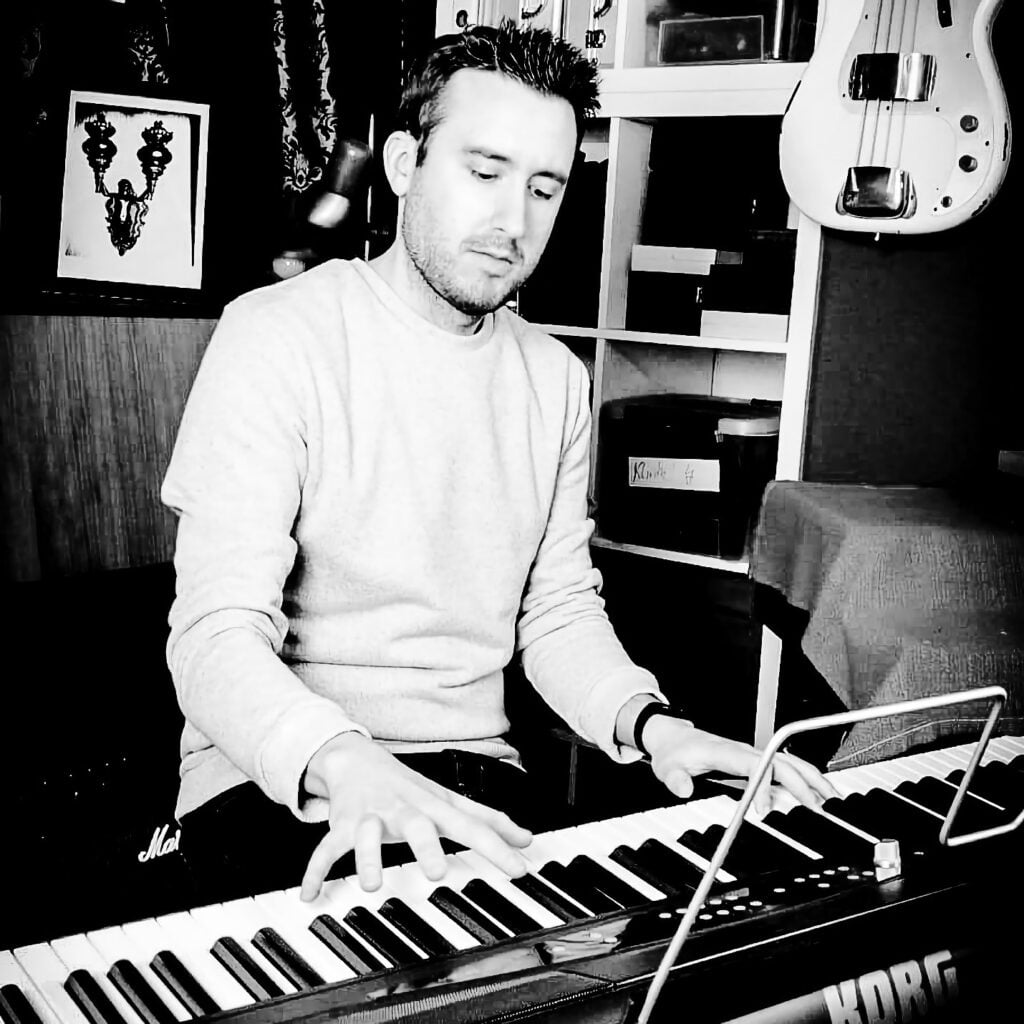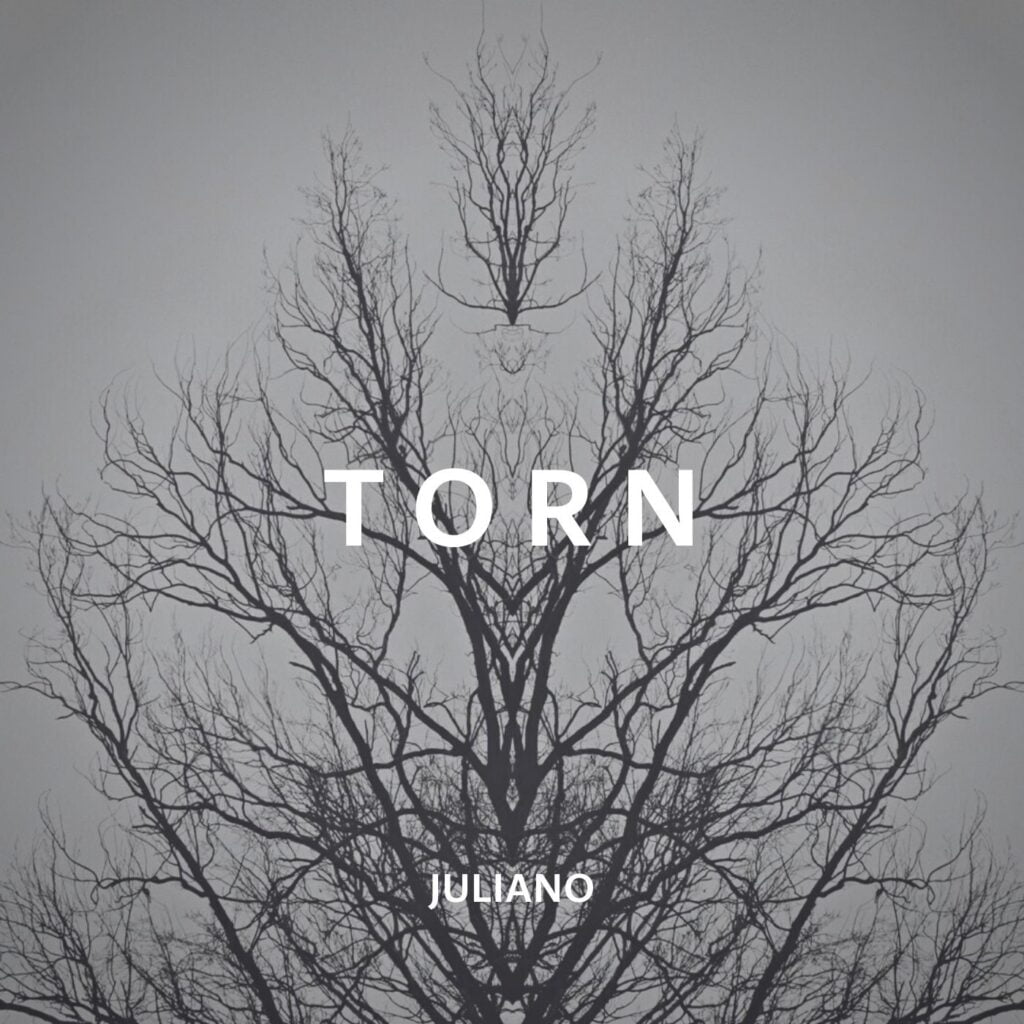This new song, “Torn,” was written by German neo-classical composer Juliano. Themes like loss, grief, melancholy, loneliness, and a person’s inner conflict of personality are among those that have inspired the music. He aims to reach as many people as possible through his music by providing them with a small diversion from their daily routine. Additionally, his music is for everyone who is looking for inner peace. Check out the song and the exclusive interview below:

1. Can you tell us a bit about where you come from and how it all got started?
JULIANO: I was born in Germany and grew up in a small town near Frankfurt. My musical journey began very early when I learned to play the accordion at the age of 6. Later, the piano followed, which is now my main instrument. From an early age, I was interested in how music and especially an orchestra works. At the age of 14, I learned to write simple arrangements at our local music school. After a little practice, I started writing different arrangements for orchestras and smaller bands at the age of 15. I have always been fascinated by the power of music and how it can evoke certain moods. I knew at the age of 15 that music was the language to express my inner world. Since then, I have done everything I could to learn different techniques of this language. During my studies I played in different bands and arranged a lot of music. Besides that, I have always composed music for myself. After my master studies I started releasing my own music on different platforms.
2. Did you have any formal training or are you self-taught?
JULIANO: I had a classical education on the piano and studied musicology. In my piano lessons I got to know various composers from different eras. Most of the time, however, I wanted to create my own music, which is why I mainly analysed and tried to imitate a lot of classical music and film music. I taught myself how to compose and tried different things. I read a lot of literature about arranging and instrumentation. Later, I studied musicology and got to know and analyse a lot of modern music and music from other eras. After my Master’s degree I knew in which direction my own sound language would develop.
3. Who were your first and strongest musical influences and why the name ‘JULIANO’?
JULIANO: There are many composers who have had or still have a strong influence on me. Chopin, Beethoven, Erik Satie, Mozart, Philip Glass, Arvo Pärt, Ludovico Einaudi, Hans Zimmer, James Horner, Max Richter, Thomas Newman, Vivaldi and many more. There are so many artists or composers that have an influence on me. But I would say that the Minimal Music has the strongest impact on me. I was and still am very impressed how this music with its simple elements speaks so directly to you. The name Juliano actually only comes from the fact that my friends and my piano teacher have been calling me that since I was a child. Before I started releasing my music, I thought about a stage name and it was clear that I would take this name.
4. What do you feel are the key elements in your music that should resonate with listeners, and how would you personally describe your sound?
JULIANO: I would describe my sound as very calm and thoughtful. My music should create a certain mood where you are able to focus on yourself. The listeners should let themselves fall into the sound and begin to reflect on themselves and their lives. But it is also meant for relaxing and getting a break from everyday life. My orchestral music is more like ambient music. I like to work with soundscapes and small motifs that develop into something big.
5. For most artists, originality is first preceded by a phase of learning and, often, emulating others. What was this like for you? How would you describe your own development as an artist and music maker, and the transition towards your own style, which is known as Neo-Classical?
JULIANO: Throughout my music career, I have learned from other composers and musicians. In the beginning, I mainly tried to imitate the styles of the composers I had to play in my piano lessons. After that, I learned many techniques by analyzing and arranging other music for different instruments. I think that especially the variety of music I had to arrange helped me finding my own musical language. Especially the influence of Minimal Music, Film music and Pop music helped me creating my own sound.
6. What’s your view on the role and function of music as political, cultural, spiritual, and/or social vehicles – and do you try and affront any of these themes in your work, or are you purely interested in music as an expression of technical artistry, personal narrative, and entertainment?
JULIANO: My music is inspired by my own feelings and my thoughts on different events in my life. This also includes political, social events, spiritual thoughts or whatever that have an impact on me. As an artist, you have the opportunity to draw attention to other grievances with your language and you should use your freedom and write about everything that moves you.
7. Do you feel that your music is giving you back just as much fulfillment as the amount of work you are putting into it or are you expecting something more, or different in the future?
JULIANO: At the moment I`m just happy to live in a time where it is so easy to share your music. I`m very thankful that people are listening to my music and that I met so many other artists because of my music. I still try to work hard on it. Sometimes you ask yourself if it’s worth it and the answer is definitely yes. And it’s not because of making money. You make this music above all for yourself and for your personal development. With every piece I write, I learn more about myself and develop myself personally. In a way, music is like a kind of therapy for me. Knowing that other people also enjoy my music makes me even happier and gives me motivation to keep going.
8. Could you describe your creative processes? How do usually start, and go about shaping ideas into a completed song? Do you usually start with a tune, a beat, or a narrative in your head? And do you collaborate with others in this process?
JULIANO: I like to sit down on my piano after long walks and just improvise. During my improvisation I come up with a melody or chord progression that has a meaning for me. If there is something that caught my attention, I try to work on that little idea, give it a structure and record different takes. Sometimes I don’t know what to do, then I leave the piece for a while and have a break from it. Meanwhile I work on other projects before I come back to the old piece. So it may happen that some pieces need several months of work. But what matters to me is the quality of my pieces, which is why I take a lot of time for my music and only write when I’m in the mood. I also like to work with other composers because it’s always challenging to get two different styles together but it is a lot of fun doing that!
9. What has been the most difficult thing you’ve had to endure in your life or music career so far?
JULIANO: There are many challenges. First of all it took me years to find my own musical language and releasing my music. Sometimes it’s hard to keep yourself motivated and go on with your music. Life as a musician is very challenging and you always try to find new ways to express yourself. Being a musician means to always question yourself and confront yourself with your inner world and your feelings and thoughts. This can be very tough and uncomfortable sometimes.
10. On the contrary, what would you consider a successful, proud or significant point in your life or music career so far?
JULIANO: Very good question. I think the most significant point in my music career was to finally start releasing my music after 12 years of finding my own musical language. Since then it was a very challenging and wonderful journey. I’m very thankful that people are listening to my music and for all the wonderful musicians I met. I hope to play some live gigs in the future where I can present my music to more people. In the meantime, I will work on more music!
KEEP IN TOUCH:
FACEBOOK | INSTAGRAM | SPOTIFY | BANDCAMP | WEBSITE | YOUTUBE

Photo credits: Ellen Judge Keyes
